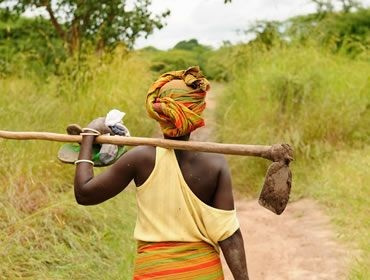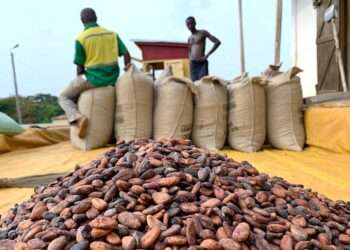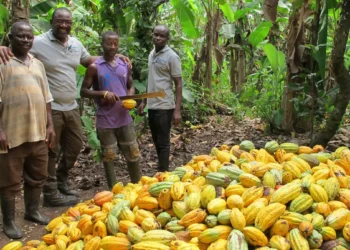The Ministry of Food and Agriculture has revealed that Ghana Agricultural Sector Investment Programme (GASIP) has supported 90,000 smallholder farmers in the last two years.
The National Programme Coordinator, Klutse Kudomor indicated that the programme has increased its implementation status from 12% in 2015 to 78% in 2019.
“GASIP became effective in 2015 and was expected to close by June 2021. However, there are considerations for extension of the programme so as to complete outstanding activities.
“ GASIP implementation status has increased to 78% within a spate of less than one year under the current management. Due to hardwork, IFAD has reclassified the status of the programme as a performing one.”
Klutse Kudomor, National Programme Coordinator.
Moreover, he stated that farmers benefited directly from production inputs and training in good agricultural practices. He went on to point out some of the benefits enjoyed indirectly by the farmers.
“They were also trained in good agricultural practices, climate change resilience, food safety and quality, food processing, among others. In terms of equipment and machinery, smallholder farmer organizations received 28 tractors, 600 power tillers and hand-held rice harvesters.”
The Coordinator revealed these during the first GASIP stakeholder meeting themed “Consolidating the Gains and Strengthening Smallholder Farmer Organizations”.
The Ghana Agricultural Sector Investment Programme (GASIP)
The GASIP is a government initiative designed to provide a framework for a long-term financing engagement for private-led agricultural value chain development in Ghana. It is financed by IFAD’s loan of US$36 million and an ASAP grant of US$10million. IFAD stands for International Fund for Agricultural Development whereas ASAP stands for Adaptation for Smallholder Agriculture Programme.
The implementation of the programme is under the auspice of the Ministry of Food and Agriculture. The goal and objectives of GASIP is to sustainably reduce poverty in rural Ghana. It seeks to increase profitability and resilience to climate change of agribusinesses and smallholder farmers.
The programme will also develop a web based geo-referenced environmental and climate information and risk management system. Thereby, building the capacity of the Ministry of Food and Agriculture on climate change issues. Moreover, GASIP will also promote improved techniques to increase water-use efficiency within existing irrigation systems.
The Ministry further revealed that the success of the investment programme has led to the development of a new programme– Livelihood and Productivity Enhancement of Smallholder Farmers (worth US$105 million).
“GASIP has demonstrated that when given more resources, the programme will execute more activities that will cause a catalytic transformation, among smallholder farmers. In this regard, IFAD, MOFA and other partners have developed a concept note for a new programme– Livelihood and Productivity Enhancement of Smallholder Farmers (PROSPER).
“This US$105 million programme will help consolidate the current gains of GASIP and expand activities to cover other value chains. IFAD is contributing 60 million USD.”
Read also: ‘SDG investor platform’ to facilitate investments in Ghana and beyond






















